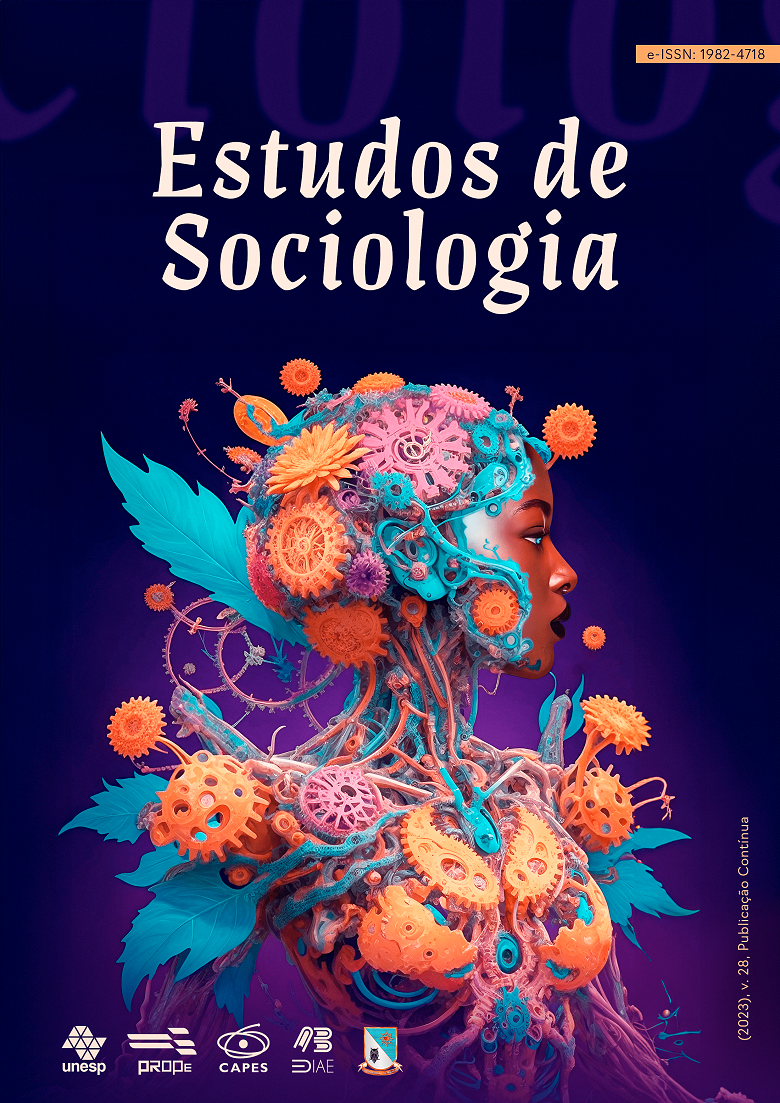Who propagates the post-truth?
The dissemination of negationist speeches and fake news by fundamentalist religious groups in Brazil
DOI:
https://doi.org/10.52780/res.v28i00.17140Keywords:
Religion sciences, Fake news, Post-truth, Negationist, FundamentalismAbstract
The article seeks to ponder on the following questions: What are the sociocultural groups and movements responsible for disseminating Fake News, propagating negationist discourses, and disseminating post-truths in Brazil today? Who are the recipients and reproducers of these fundamentalist discourses? Are there limits to religious freedom and expression? And what is the role of the religion scientist, imbued with the prerogatives of the decolonial/intercultural paradigm, in the face of the problems related to the intensification of fundamentalisms and their respective arbitrary and uncompromising practices in the sociocultural field? To this end, the understanding of the category’s "pluralism", "secularism" and "fundamentalism" will be explored. The discussion is based on the contributions of authors who dedicated themselves to the reflection of such problems from the epistemological field of the sciences of religion and sociology of religion.
Downloads
References
ARMSTRONG, K. Em nome de Deus: o fundamentalismo no judaísmo, no cristianismo e no islamismo. São Paulo: Companhia das Letras, 2009.
BERGER, P. L. Rumor de anjos: a sociedade moderna e a redescoberta do sobrenatural. 2. ed. Petrópolis: Vozes, 1997.
BERGER, P. L. Os múltiplos altares da modernidade: rumo a um paradigma da religião numa época pluralista. Petrópolis, RJ: Vozes, 2017a.
BERGER, P. L. O imperativo herético: possibilidades contemporâneas da afirmação religiosa. Petrópolis, RJ: Vozes, 2017b.
BERGER, P. L.; LUCKMANN, T. Modernidade, pluralismo e crise de sentido. A orientação do homem moderno. Petrópolis, RJ: Vozes, 2004.
BERGER, P. L.; ZIJDERVELD, A. Em favor da dúvida: como ter convicções sem se tornar um fanático. Rio de Janeiro: Elsevier, 2012.
CARRANZA, B. Brasil, fundamentalista? Encontros teológicos, [S. l.], n. 52, ano 24, v. 1, p. 147-166. 2009. Disponível em: https://facasc.emnuvens.com.br/ret/article/viewFile/327/314. Acesso em: 22 ago. 2022.
COUTINHO, S. R.; SANCHES, W. L. O pluralismo religioso e as religiões em movimento. Revista de Cultura Teológica, [S. l.], ano XXIX, n. 99, p=p. 256-275, mai./ago., 2021. Disponível em: https://revistas.pucsp.br/index.php/culturateo/article/view/54373/37835. Acesso em: 23 ago. 2022.
GIDDENS, A. As consequências da modernidade. São Paulo: Ed. UNESP, 1991.
OTTO, R. O sagrado: Os aspectos irracionais na noção do divino e sua relação com o racional. São Leopoldo: Sinodal/EST.; Petrópolis, RJ: Vozes, 2007.
RIBEIRO, C. O. O princípio pluralista: bases teóricas, conceituais e possibilidades de aplicação. Revista de Cultura Teológica, [S. l.], ano XXV, n. 90, jul./dez., 2017. Disponível em: https://revistas.pucsp.br/index.php/culturateo/article/view/rct.i90.35979. Acesso em: 23 ago. 2022.
SANTOS, B. S. Construindo epistemologias do sul: antologia essencial. Vol. I: Para um pensamento alternativo de alternativas. Ciudad Autónoma de Buenos Aires: CLACSO, 2018.
Published
How to Cite
Issue
Section
License

À revista Estudos de Sociologia ficam reservados os direitos autorais pertinentes a todos os artigos nela publicados.
Os artigos publicados e as referências citadas na revista Estudos de Sociologia são de inteira responsabilidade de seus autores.
A Estudos de Socilogia utiliza a licença https://creativecommons.org/licenses/by/4.0/ (CC BY), que permite o compartilhamento do artigo com o reconhecimento da autoria.



